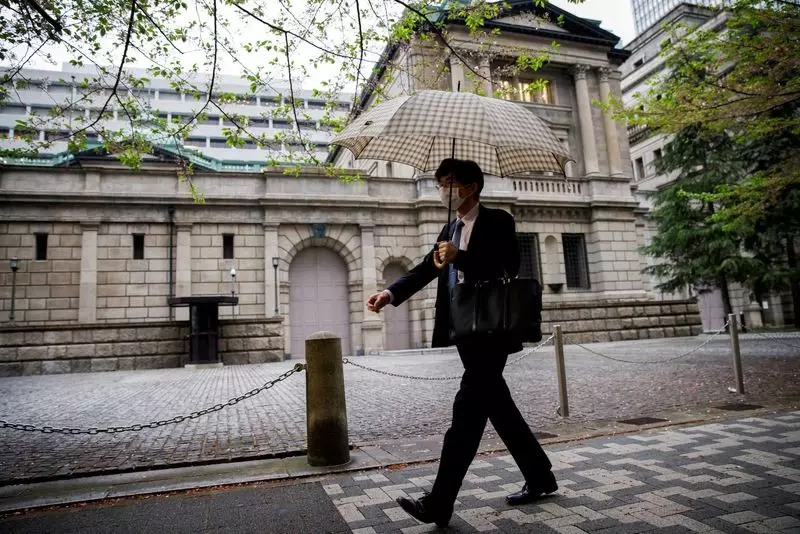The Bank of Japan’s deputy governor, Shinichi Uchida, recently made comments suggesting that the central bank is unlikely to hike interest rates in times of market turbulence. This stands in contrast to Governor Kazuo Ueda’s more hawkish remarks following a surprise interest rate hike by the BOJ. Uchida emphasized the importance of maintaining current levels of monetary easing, especially given the recent volatility in both domestic and overseas financial markets. This cautious approach reflects a recognition of the potential impact of market instability on the central bank’s economic and price projections.
Uchida’s comments had a notable impact on Japan’s financial markets, with the Nikkei share average rising and the yen depreciating in response. The market volatility seen in recent weeks has led to speculation about the timing of future rate hikes by the BOJ. Analysts point out that the current high levels of market volatility could make it more challenging for the central bank to proceed with a rate hike in October as previously anticipated. Factors such as the strengthening of the yen and the impact on import prices could further complicate the BOJ’s decision-making process.
The recent interest rate hike by the BOJ comes in the context of a shifting global economic landscape. While the United States remains a key player, concerns about recession and market volatility have raised questions about the trajectory of monetary policy in Japan. Uchida’s remarks underscore the need for a cautious approach to interest rate adjustments, particularly in light of the interconnectedness of global financial markets. The BOJ’s decision-making process is influenced by a range of factors, including exchange rate fluctuations, stock market performance, and inflation dynamics.
Looking ahead, the BOJ faces the challenge of balancing its commitment to achieving a 2% inflation target with the need to support economic growth. Uchida’s comments suggest a more dovish stance compared to Governor Ueda’s earlier remarks, indicating a potential divergence in views within the central bank. With uncertainties persisting in the global economy, the BOJ is likely to proceed cautiously with future rate hikes. The impact of external factors, such as U.S. economic indicators, will play a crucial role in shaping the central bank’s policy decisions in the coming months.
The Bank of Japan’s interest rate policy reflects a delicate balancing act between domestic economic conditions and global market dynamics. Uchida’s recent statements highlight the importance of maintaining stability in monetary policy during periods of heightened volatility. As the central bank navigates a complex economic environment, it will need to carefully assess the implications of its policy decisions on various stakeholders. Ultimately, the path forward for the BOJ’s interest rate policy will be shaped by a range of internal and external factors, underscoring the need for a nuanced and proactive approach to monetary policy.

